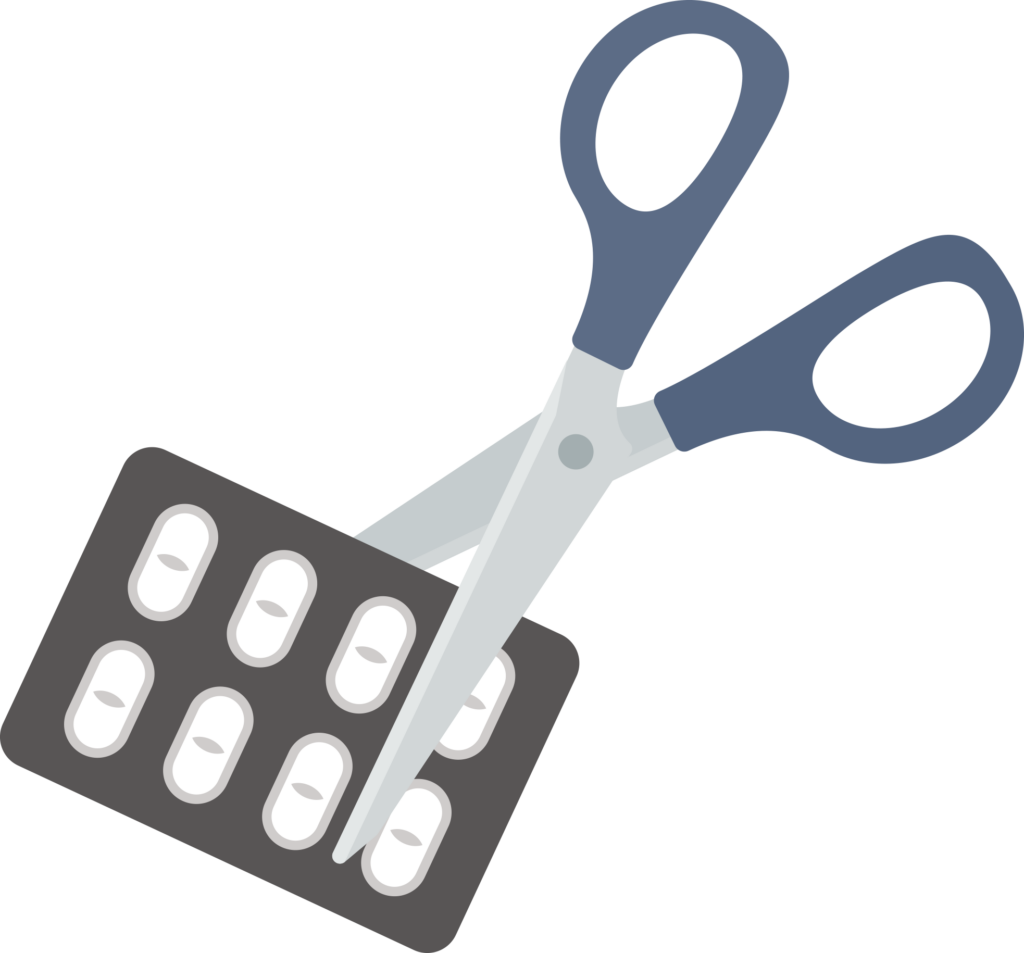NEW: KI tablet distribution
KI tablets have been distributed to residents, schools, daycares and businesses within a 10 km radius to Bruce Power and are available free of charge for pick up at participating pharmacies in nearby communities.


In 2025, Bruce Power in partnership with the Municipality of Kincardine and Grey Bruce Public Health will provide residents within 10 km to Bruce Power an updated package of KI tablets to replace the original tablets that were pre-distributed in 2015 that are set to expire.
New packages will be mailed to residents living within 10 km to the Bruce Power site and will be mailed to their home address. Residents living outside of 10 km to Bruce Power who wish to receive a package can do so at participating pharmacies across the region.
Potassium Iodide (KI) distribution
Distribution of KI tablets is one of the many initiatives continually enhancing emergency preparedness in the region. It is all about a safe community becoming safer.

For residents living within 10 km of Bruce Power, KI will be mailed to your home address. Additional packages for those living outside the 10 km zone can pick up a package of KI free of charge at any of the following locations:
Bruce Power in partnership with the Grey Bruce Public Health and regional municipalities have made Potassium Iodide (KI) tablets available to all residents, schools and businesses within a 50 kilometre (km) radius of Bruce Power.
Potassium Iodide (KI) has always been available to residents free of charge. This initiative, advocated by the Canadian Nuclear Safety Commission (CNSC) to
pre-distribute Potassium Iodide (KI) to residents has replaced the old practice
of having the tablets stored at one central location.
Potassium Iodide, when taken as instructed, blocks the thyroid from radioactive iodine in the unlikely event of a radiation release.
For all residents and businesses within 10 km, KI will be mailed to your primary address early in 2025.
Residents living up to 50 km radius to Bruce Power are eligible to receive KI tablets should you choose at participating pharmacies. Please print off this voucher and take to any participating pharmacies:
- Hanover Pharmasave
118 7th Ave. Hanover, ON - Gordon’s Pharmasave
766 Queen St. Kincardine, ON - Lucknow Pharmasave
622 Campbell St. Lucknow, ON - Stewart’s Pharmacy
1024 ON-9, Mildmay, ON - Guardian Pharmacy
514 Queen St. S. Paisley, ON - Wardrop Pharmasave
639 Goderich St. Port Elgin, ON - Sauble Family Health Team
672-B Main St. Sauble Beach, ON - Mino Bimaadsawin Health Centre
For members of Saugeen First Nation, 57 Mason Dr. Southampton, ON - Bruce Power Visitors’ Centre
3394 Bruce Road 20 Tiverton, ON - Brown’s Guardian Pharmacy
331 Durham Street, Walkerton, ON - Pellow Pharmasave
232 Durham St. East, Walkerton, ON - Ripley Pharmacy
32 Queen St., Ripley ON
If you require further information please email info@brucepower.com.
Potassium Iodide (KI) facts
In the unlikely event of a nuclear incident involving a release of radioactive iodine, one of the health risks is a possible internal exposure of the thyroid gland to radioactive iodine. One way to protect the thyroid from the harmful effects of radioactive iodine is to take Potassium Iodide (KI). The following are some commonly asked questions about KI tablets.
What is KI?
KI (the chemical name for Potassium Iodide) is a salt of stable (not radioactive) iodine. Stable iodine is an essential nutrient needed in very small quantities for the thyroid gland to function properly.
KI comes in tablet form and can be easily swallowed.
How does KI work?
When swallowed, KI fills up the thyroid with stable iodine so it cannot absorb any other iodine for a period of time. This prevents the thyroid from absorbing harmful levels of radioactive iodine so that the radioactive iodine will not accumulate and the body will naturally excrete it. This process is also called iodine thyroid blocking.
The thyroid gland does not know the difference between non-radioactive and radioactive iodine and can absorb both. Absorption of harmful levels of radioactive iodine can increase the risk of thyroid cancer later in life, especially in children.
Can KI be used to protect against all forms of radiation?
No. KI provides protection only to the thyroid gland and only against internal contamination from radioactive iodine. Radioactive iodine may be found in emissions from nuclear generating stations during an incident. KI will not protect against exposure to other contaminants contained in those emissions.
When should I take KI and how will I know to take it?
KI is only to be used during an emergency and when instructed to do so by the Ontario Medical Officer of Health. If you’ve been given direction by the Ontario Medical Officer of Health to take KI pills, they should be taken before exposure to radioactive iodine during a nuclear emergency. The optimum time is two to six hours earlier. If that is not possible, KI should be taken as soon as possible after first exposure, ideally within three hours. There is no benefit to taking KI if there has been a 24-hour delay.
If there is a threat of a significant exposure to radioactive iodine from a nearby nuclear generating station, the Chief Medical Officer of Health for Ontario will provide instructions through radio, TV, Internet and other available channels on where, when, and by whom KI should be taken.
How long are KI tablets good for? How should they be stored?
The expiry date is printed on the label of the KI packaging. The KI tablets should be kept sealed at room temperature and away from light and moisture. Keep it out of reach of children and pets.
Are there any side effects from taking KI?
The risk of side effects from taking a dose of KI is extremely low for all age groups who have normal thyroid function. The overall benefit during a nuclear emergency outweighs the risks of side effects.
There is an increased risk of side effects for people with thyroid disorders i.e., auto-immune thyroiditis, Graves’ disease, iodine deficiency and nodular goiter. These disorders are more common in adults and the elderly and are rare in children.
Rare side effects in other parts of the body, such as gastrointestinal effects or hypersensitivity reaction may occur but are generally mild. People who are sensitive to iodine or who have an existing or previous thyroid disorder or any other concerns should consult their doctor or nurse practitioner prior to taking KI.
Who benefits most from taking KI?
Pregnant and breastfeeding women, infants, children and adolescents should be among the first to receive KI as they are at higher risk for developing thyroid cancer after exposure to radioactive iodine.
What if I have a family member who cannot swallow a KI tablet?
Adults and young children who are unable to swallow a KI tablet can either crush the tablet into food or dissolve in fluids.
How do I safely dispose of my expired KI?
Proper and safe disposal of expired Potassium lodide (KI) is encouraged.
Residents can choose the following:
OPTION 1:
For residents living within 10 km to Bruce Power, a pre-paid/pre-addressed envelope has been mailed out with your new package of KI to safely return your expired tablets to KI Canada.

OPTION 2:
Residents can remove Potassium lodide (KI) from plastic packaging and recycle the plastic outer shell. The Radblock – 65 mg Potassium lodide, are non-toxic, non-hazardous tablets. Residents are encouraged to cut up the two, ten-tablet strips with scissors and safely dispose in the trash away from children and pets.


The above section provides basic information only and is sourced from Ontario Ministry of Health and Long-Term Care and Health Canada websites. This information must not take the place of medical advice, diagnosis, or treatment. Always talk to a health care professional about any health concerns you have and before you make any changes to your diet, lifestyle or treatment.